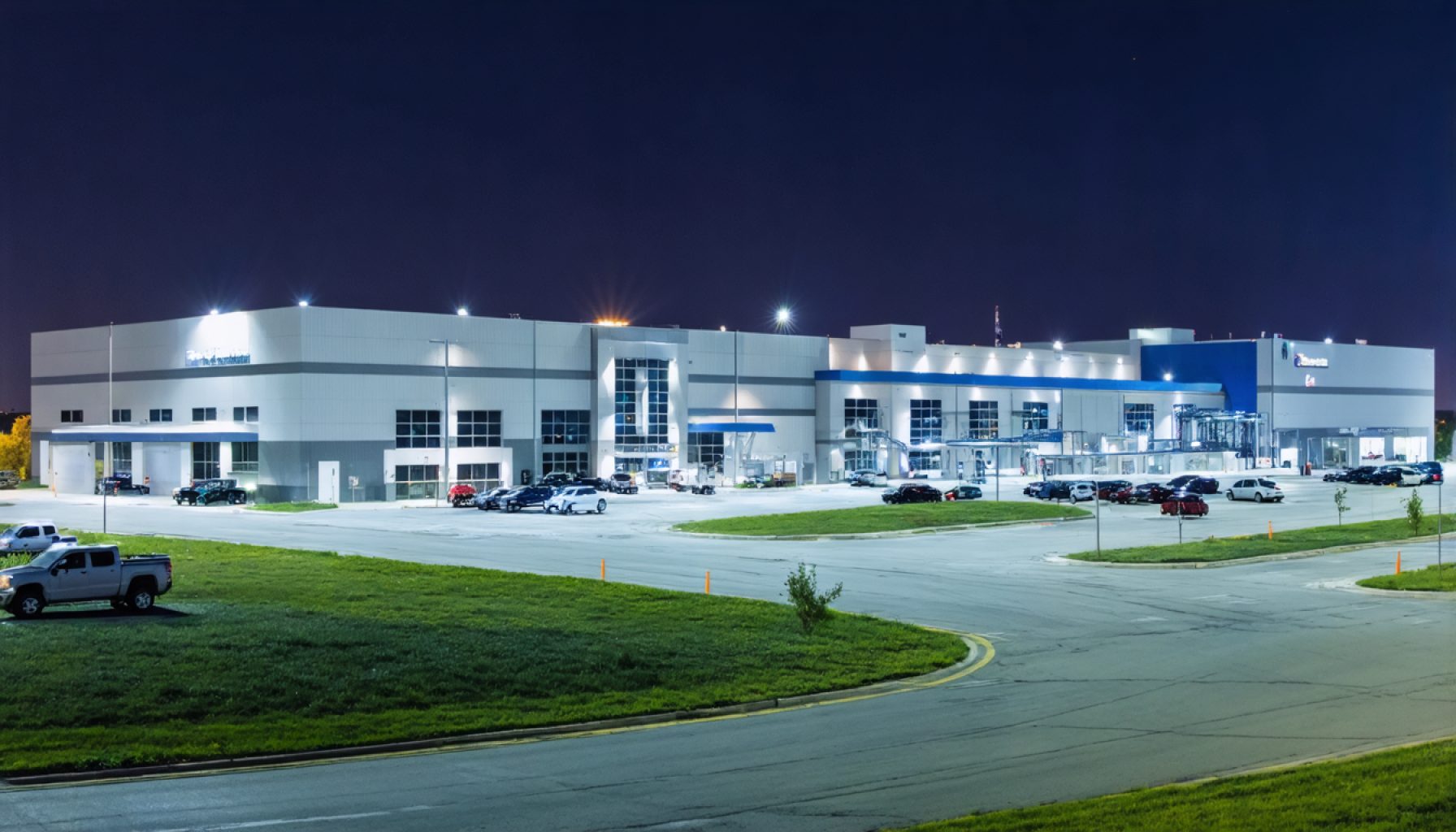- Gotion’s $2 billion electric vehicle battery plant in Mecosta County, Michigan, faces significant local opposition.
- The project promised economic revitalization with over 2,000 jobs, but concerns about the company’s Chinese ties have arisen.
- Environmental and national security concerns have fueled community backlash, leading to the recall of pro-Gotion township officials.
- Gotion responded with legal action as the new township leaders aim to terminate the agreement.
- The conflict is pending resolution in federal appeals court, with arguments expected in early May.
- This local dispute highlights national conversations on balancing economic growth, national security, and environmental protection.
- The impending court decision may set a precedent for future American industry and community relations.
Nestled in the quiet expanse of rural Mecosta County, Michigan, a storm brews not in the skies but in the courts, as a planned $2 billion electric vehicle battery plant meets with fierce opposition. The brainchild of Gotion, a U.S. subsidiary of its Chinese parent company, this ambitious venture promised to transform the local economy by delivering over 2,000 jobs. Hopes ran high when the ink dried on an agreement with Green Charter Township officials back in August 2023. Yet, it seems the path to economic revitalization is far from smooth.
A groundswell of local resistance has cast doubt over the project’s future, with the community loud in its concerns about Gotion’s alleged ties to China’s ruling Communist Party. Fear of foreign control has entwined with environmental anxieties, despite Gotion executives in the U.S. asserting the company’s operational independence and dismissing worries over potential water contamination as groundless.
The tension tore through the community fabric, leading to the recall of pro-Gotion township officials. In retaliation, Gotion escalated the battle to the courtroom, filing a lawsuit as the new township leaders sought to sever ties. The conflict now languishes in the hands of a federal appeals court, with oral arguments scheduled for early May—each party awaiting a ruling that could redefine the regional landscape.
In the wider context, this dispute reflects a burgeoning national conversation around sustainable progress and globalization’s growing interdependencies. The narrative in Mecosta County mirrors debates across America: the balancing act between economic development, national security, and environmental stewardship, illustrating how the promise of innovation often collides with the complexities of geopolitics.
The key takeaway from this unfolding saga is clear: As America strides toward a greener, more interconnected future, communities will navigate the convergence of opportunity and caution. The decision from the court could very well set a precedent, not only for enchanted Michigan pastures but for the heart of American industry and the spirit of its people.
Michigan’s Electric Future: The Battle Over Gotion’s $2 Billion Battery Plant
Introduction
In rural Mecosta County, Michigan, a quiet storm brews—not of weather, but of legal and communal strife. At the center is Gotion, a U.S. subsidiary of a Chinese parent company, and its proposed $2 billion electric vehicle battery plant. While the project promises an economic renaissance with over 2,000 new jobs, it faces fierce local opposition. Concerns swirl around potential environmental impacts and the company’s alleged ties to China’s ruling Communist Party.
Understanding the Gotion Project Controversy
1. Economic Promise vs. Local Concerns
– Economic Impact: Gotion’s plant is projected to create a significant number of jobs, potentially transforming the regional economy. Construction and subsequent operations would bolster local businesses and increase tax revenues, assisting in infrastructural and community development.
– Local Resistance: However, the benefits are overshadowed by skepticism regarding foreign influence and environmental degradation. Locals fear that ties to China could compromise national security, echoing larger geopolitical tensions.
2. Community Response and Legal Battle
– Political Repercussions: Public dissent led to the removal of pro-Gotion township officials, reflecting deep-seated mistrust. The replacement leaders have sought to sever Gotion’s agreement, escalating tensions to a federal appeals court.
– Court Proceedings: The case’s outcome could have far-reaching implications, potentially setting legal precedents for future infrastructure projects involving foreign entities.
Deeper Insights into Key Issues
– Environmental Concerns: While Gotion claims environmental fears are unfounded, locals remain worried about potential water contamination and ecological disturbances. Ensuring environmental assessments and transparent operational processes could alleviate some concerns.
– Geopolitical Tensions: The project presents a microcosm of the larger national debate on globalization, security, and self-reliance. As the U.S. pursues green technologies, balancing foreign collaboration with national interests is crucial.
Real-World Use Cases and Market Trends
– Electric Vehicle (EV) Trends: The global pivot towards electric vehicles is undeniable, with demand for battery production escalating. This project aligns with national trends pushing for sustainable energy solutions, yet the community’s apprehensions highlight the need for cohesive communication and assured safety measures.
– Economic Development: Regions with manufacturing plants often experience economic revitalization, including job creation, improved infrastructure, and increased investment in community services and education.
Recommendations and Key Takeaways
– Community Engagement: Gotion and similar projects need robust community engagement strategies to build trust and address local concerns fully.
– Transparency and Independence Testing: Clear communication about operational independence from foreign governments is essential. Regular audits and environmental assessments could help dispel fears.
– Government Mediation: Federal or state mediation might resolve local disputes while ensuring projects align with broader national policy goals.
Conclusion
As America accelerates towards a green future, projects like Gotion’s battery plant illustrate the careful balancing act between embracing innovation and safeguarding local interests. The ongoing court case treads new ground, potentially shaping the blueprint for future U.S. foreign investments in technology.
For further information on the industry’s direction, visit Bloomberg or Reuters.
Actionable Tips
– Stay Informed: Community members should keep abreast of proceedings and engage in public consultations.
– Focus on Dialogue: Effective dialogue between stakeholders can mitigate misunderstandings and foster collaborative solutions.
By understanding both the promises and perils of such projects, communities can navigate the path towards sustainable modernization effectively.
